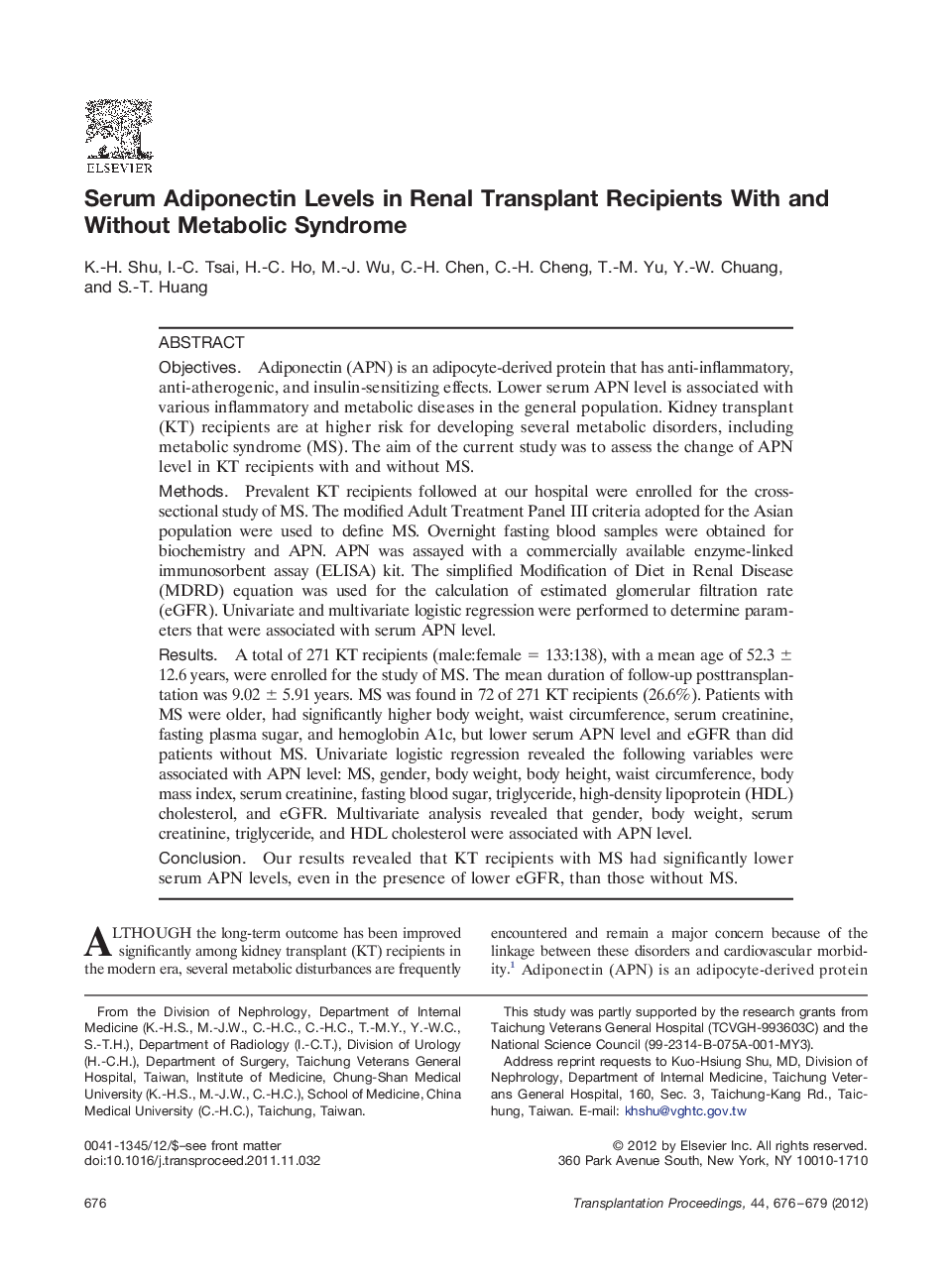| Article ID | Journal | Published Year | Pages | File Type |
|---|---|---|---|---|
| 4257767 | Transplantation Proceedings | 2012 | 4 Pages |
ObjectivesAdiponectin (APN) is an adipocyte-derived protein that has anti-inflammatory, anti-atherogenic, and insulin-sensitizing effects. Lower serum APN level is associated with various inflammatory and metabolic diseases in the general population. Kidney transplant (KT) recipients are at higher risk for developing several metabolic disorders, including metabolic syndrome (MS). The aim of the current study was to assess the change of APN level in KT recipients with and without MS.MethodsPrevalent KT recipients followed at our hospital were enrolled for the cross-sectional study of MS. The modified Adult Treatment Panel III criteria adopted for the Asian population were used to define MS. Overnight fasting blood samples were obtained for biochemistry and APN. APN was assayed with a commercially available enzyme-linked immunosorbent assay (ELISA) kit. The simplified Modification of Diet in Renal Disease (MDRD) equation was used for the calculation of estimated glomerular filtration rate (eGFR). Univariate and multivariate logistic regression were performed to determine parameters that were associated with serum APN level.ResultsA total of 271 KT recipients (male:female = 133:138), with a mean age of 52.3 ± 12.6 years, were enrolled for the study of MS. The mean duration of follow-up posttransplantation was 9.02 ± 5.91 years. MS was found in 72 of 271 KT recipients (26.6%). Patients with MS were older, had significantly higher body weight, waist circumference, serum creatinine, fasting plasma sugar, and hemoglobin A1c, but lower serum APN level and eGFR than did patients without MS. Univariate logistic regression revealed the following variables were associated with APN level: MS, gender, body weight, body height, waist circumference, body mass index, serum creatinine, fasting blood sugar, triglyceride, high-density lipoprotein (HDL) cholesterol, and eGFR. Multivariate analysis revealed that gender, body weight, serum creatinine, triglyceride, and HDL cholesterol were associated with APN level.ConclusionOur results revealed that KT recipients with MS had significantly lower serum APN levels, even in the presence of lower eGFR, than those without MS.
